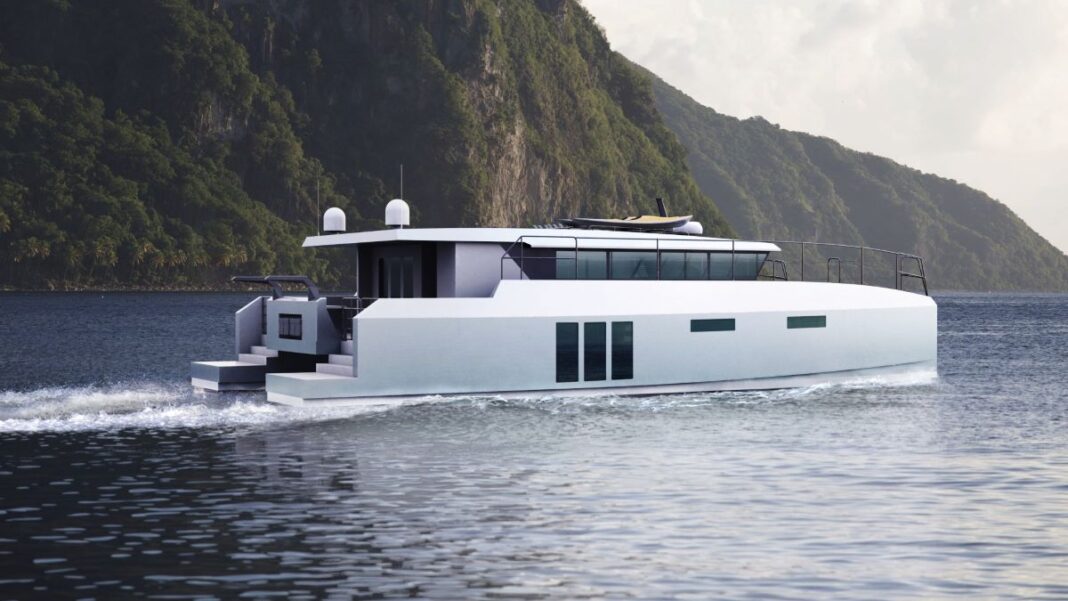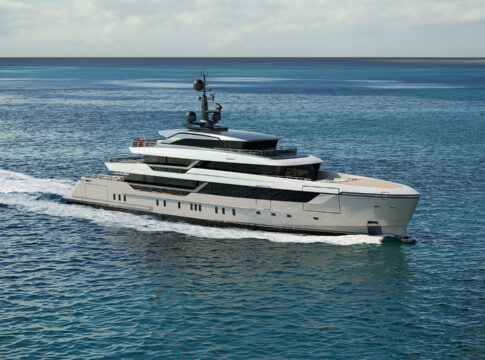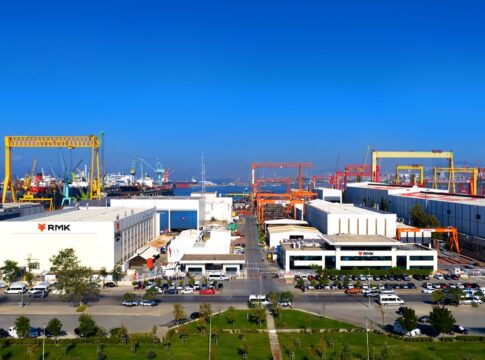As pressure to decarbonise intensifies, methanol is emerging as a realistic fuel reshaping what sustainable yachting can become.
As the pressure on the marine industry to decarbonise intensifies, methanol is emerging as one of the most realistic pathways to a cleaner future. Once overlooked, this flexible fuel is now moving from industrial applications into mainstream maritime and leisure sectors, reshaping expectations for what sustainable yachting can look like.
The global marine industry is responsible for almost three percent of worldwide greenhouse gas emissions. Regulators are tightening targets, consumers are demanding cleaner alternatives, and the long dominance of diesel is reaching its limit. Methanol, praised for its cleaner combustion and practical handling, is rapidly gaining momentum as a transitional fuel that aligns immediate needs with long term environmental goals.
The decarbonisation challenge
International shipping emits close to one billion tonnes of carbon dioxide each year. Beyond carbon, pollutants such as nitrogen oxides and particulate matter contribute to air quality concerns and drive ocean acidification. The International Maritime Organisation has set ambitious targets of reducing carbon intensity by forty percent by 2030 and total emissions by fifty percent by 2050 compared with 2008. Additional regulation is expected to push the sector toward low carbon fuels faster than ever.
These pressures extend to the leisure market. Yacht owners now prioritise vessels that align with sustainability values, and some marinas are introducing green berth incentives or restrictions on high emission yachts. Diesel, long the default option due to its reliability and energy density, now carries a symbolic weight that no longer fits the expectations of a more environmentally aware clientele.
Methanol’s rising appeal
Methanol stands out for its versatility and practicality. It is liquid at ambient temperatures, easy to store, and traded globally as an industrial chemical, giving it an infrastructure advantage. Most importantly, its production pathway supports long term decarbonisation. While traditional methanol is derived from natural gas, renewable e methanol can be produced from captured carbon dioxide and green hydrogen, allowing for net zero emissions across its lifecycle. As renewable energy becomes more affordable, the cost of e methanol is expected to fall significantly.
Even fossil based methanol reduces nitrogen oxide and particulate emissions compared with diesel and eliminates sulphur emissions entirely. It can be used in modified combustion engines or as a hydrogen carrier for fuel cell systems, avoiding the storage challenges associated with pure hydrogen.
For leisure vessels, methanol offers a pragmatic balance. Hydrogen storage remains complex, ammonia poses toxicity risks, battery electric propulsion is limited by range, and LNG is losing traction due to methane leakage concerns. Methanol overcomes these challenges while providing a realistic path to cleaner propulsion.
From commercial shipping to leisure yachting
Commercial shipping has already begun the shift, with companies like Maersk adopting methanol dual fuel vessels. This early progress is influencing the leisure sector, which must adapt technologies proven at commercial scale into environments where comfort, aesthetics, and user experience play central roles.
The Archipelago zero point six three is a leading example of this evolution. Designed as a methanol hydrogen hybrid, it incorporates a methanol combustion engine, onboard reformers, and fuel cells that enable both long range cruising and zero emission operation when required. Dr Stephen Weatherley, CEO of Archipelago Yachts, describes it as a proving ground. “We’re demonstrating what’s possible when you combine existing technologies innovatively. Methanol gives us the range and reliability clients expect, while the hybrid architecture allows zero emissions when it matters most.”
The original Archipelago zero point six three was designed in collaboration with Chartwell Marine. Chartwell’s Managing Director, Andy Page, highlights the vessel’s wider significance. “The route away from the industry’s reliance on diesel is still unclear. Innovative leisure vessels, such as the zero point six three, can pave the way for the de risking commercial uptake of alternative fuels. Chartwell Marine is involved in a number of methanol projects across leisure and commercial and we are increasingly seeing customer demand for lower carbon vessels across the industry.”
Remaining barriers
Despite its advantages, methanol faces important challenges. Renewable e methanol remains limited in production and more expensive than fossil derived methanol. Infrastructure is sparse, particularly in leisure marinas that are hesitant to invest without clear demand. Regulatory frameworks for methanol powered yachts are still under development and must address safety, storage, and integration standards. Methanol’s lower energy density compared with diesel also requires larger storage volumes, influencing vessel layout and weight distribution.
Government backing is essential. Funding programmes such as those from Innovate UK help lower development risks, enabling early prototypes and supporting the creation of a broader supply chain. Financial incentives and clear regulatory pathways will be key to accelerating adoption.
A Blueprint for Industry Transformation
Methanol’s strength lies in its role as both a transitional and long term solution. It can be deployed with existing technologies today while charting a clear route toward full decarbonisation as renewable production scales. For yacht builders, adopting methanol is an opportunity to lead in sustainability, differentiate products, and respond to shifting market values.
Collaboration between designers, shipyards, technology providers, and policymakers will be essential. Demonstration vessels like the Archipelago zero point six three and national initiatives such as the Methanol Pathfinder UK help build confidence and generate the data required to support wider regulatory and commercial adoption.
The road ahead
The transition to methanol is gathering momentum, but its full adoption will depend on expanding renewable production, upgrading fuel infrastructure, refining safety standards, and demonstrating performance at sea. For the yachting sector, the shift presents a chance to redefine luxury around responsibility and innovation. By embracing methanol, the industry can reposition itself as a leader in sustainable excellence, powering a future where environmental stewardship and high end craftsmanship move forward together.






